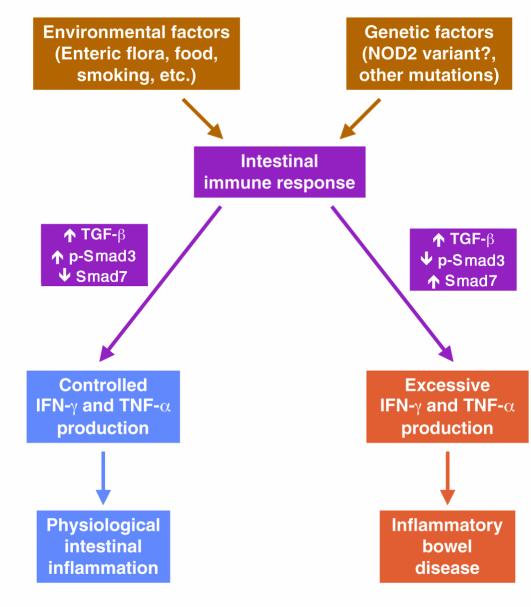Figure 2.
Effect of defective TGF-&bgr; signaling on the outcome of the intestinal immune response. Environmental antigens activate the intestinal immune system, a response that is modulated by the genetic make-up of the host. In normal individuals the enhanced intestinal production of TGF-&bgr; is accompanied by an increase of phosphorylated Smad3 (p-Smad3) with a concomitant decrease of inhibitory Smad7. This allows the expression of TGF-&bgr; anti-inflammatory activity, which maintains IFN-&ggr; and TNF-&agr; within limits compatible with physiological intestinal inflammation. In susceptible individuals, activation of the immune system also leads to increased production of TGF-&bgr;, but inappropriately high levels of Smad7 inhibit p-Smad3 resulting in defective TGF-&bgr; signaling. As a consequence, excessive amounts of IFN-&ggr; and TNF-&agr; are produced resulting in chronic intestinal inflammation clinically manifested as IBD.

